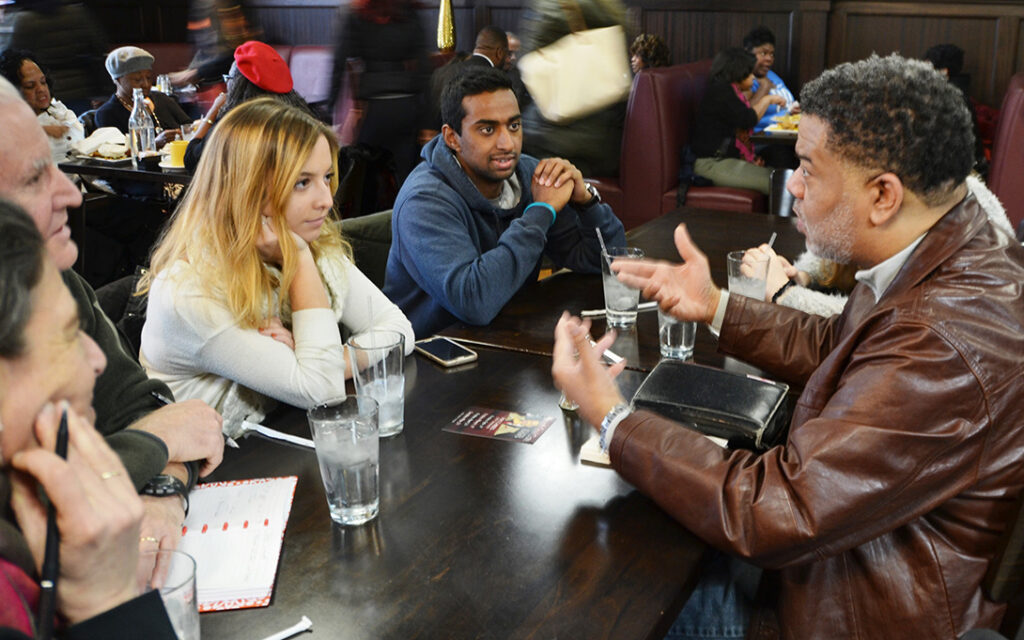Lily Hamburger says that DNEP’s presence in Detroit has generated trust and new projects, such as the DNEP+Impact Studio for Local Business, which helps entrepreneurs pivot in the post-pandemic economy.
-
February 3, 2022
Detroit unemployment rate sits at 20%
Nearly one of every four parents who are not in the labor force (23%) reported they stopped working within the past year—three times the rate of other Detroiters who are out of the labor force.
-
November 30, 2021
Celebrating 10 years of Bohnett Fellows in Detroit
The David Bohnett Foundation Leadership and Public Service Fellowship, funded by University of Michigan alumnus David Bohnett (MBA ’80), is competitively awarded to three incoming master’s students each year.
-
September 7, 2021
U-M awarded grant to support Detroit entrepreneurs in bridging digital divide
The project builds on Tawanna Dillahunt and Julie Hui’s partnership with the Friends of Parkside to pilot a “community tech worker” program to assist seniors requiring technology-related support. Tech workers will be embedded at Jefferson East to develop a sustainable, useful model that will help bridge the digital divide for small businesses.
-
August 12, 2021
FIRST PERSON: Learning from Detroit businesses and fellow students
“To maximize our impact, each team is focusing on one specific area of need so we can address that same problem in multiple companies and develop expertise in that area. As a result, we have eight teams: four focusing on marketing problems and four focusing on operations.”
~ Michael Willard -
July 22, 2021
Concern about safety is main reason many Detroiters are not getting vaccinated, U-M survey finds
Importantly, the survey results demonstrate that vaccine hesitancy is surmountable. More than 1 in 3 residents (34%) who reported being unlikely to get vaccinated between January and March 2021 have since received at least one dose of the vaccine.
-
July 24, 2020
Hunger and COVID: Fighting pandemic-related food insecurity in Detroit
As COVID-19 swept across the city of Detroit, it brought with it a wave of food insecurity, particularly among low-income residents and seniors who rely on public transportation and can only afford to buy small amounts of food at a time. Now, a U-M research team has stepped in to help identify solutions.
-
June 30, 2020
Unemployment remains steadily high in Detroit
Survey results suggest that many families are struggling with rising costs and food shortages. Sixty-five percent of Detroit households report spending more at the grocery store in the last month, while 71% of those who report not having enough to eat in the past week point to the prohibitively high cost of food as a cause of their insecurity.
-
June 26, 2020
Wilson Foundation supporting U-M students working with Detroit businesses.
Modeled after a design studio, small teams of students will work with a portfolio of business owners within certain industry sectors to identify immediate needs and develop solutions. This approach should allow students to perform substantive work without overly burdening business owners who may be in crisis.


